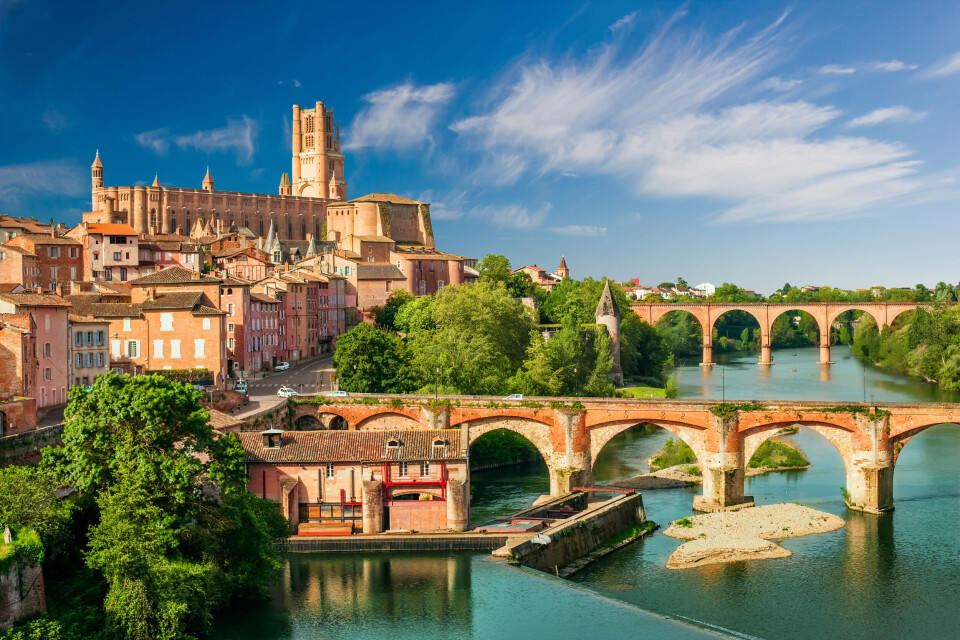-
Britons are the largest foreign community of second-home owners in Nouvelle Aquitaine
See which other departments in the region are popular with British nationals
-
Travellers risk extra costs under new Eurotunnel ticket rule
Some fare options are less flexible and less forgiving of lateness
-
May will be difficult month for train travel in France, warns minister
Two major train unions are threatening to strike and are ‘not willing to negotiate’, he says
Top 100 ranking: The healthiest towns or cities in France to live in
A new list compares towns with older populations to see where you are more likely to live into a healthy old age – with a clear socio-economic divide emerging

Albi, Tarbes, Bordeaux, Grenoble and Antibes are named the top five healthiest towns or cities to live in across France in a new ranking.
The ranking, by Le Figaro, compares 100 towns and cities across the country, to determine where people have a greater chance of living into old age in the best health.
It looks at a number of criteria including general public health, the number of doctors and air quality.
The 100 places were selected because they have the most inhabitants aged 75 and over.
Overall, Le Figaro compiled three rankings:
It then took the average of these three rankings to compile an overall list. The full rankings from 1-100 can be found directly on the Le Figaro website.
General health
The top 10 towns with the best general health, according to departmental data, were:
- Ajaccio
- Tours
- Toulouse
Five towns and cities in the Alpes-Maritimes came in joint fourth place (places 4-8).
- Antibes
- Cagnes-sur-Mer
- Cannes
- Le Cannet
- Nice
The top 10 was rounded out by Grenoble (Isère), and Montreuil (Seine-Saint-Denis).
Number of doctors
The top 10 towns by number of doctors per 10,000 inhabitants, including GPs, cardiologists, ophthalmologists, lung specialists, and radiologists, were:
- Biarritz
- Bayonne
- Bordeaux
- Montauban
- Lille
- Neuilly-sur-Seine
- Vannes
- Rouen
- Amiens
- Narbonne
Air quality
The top 10 towns with the best air quality, by data on the average air pollution particles of PM10, PM2.5, and oxygen levels, were:
- Pau
- Brive-la-Gaillarde
- Montluçon
- Limoges
- Bourges
- Tarbes
- Besançon
- Montauban
- Vannes
- Niort
The overall healthiest places
To compile the overall ranking, Le Figaro took the averages of the three other rankings, and applied coefficients, meaning that general health was considered the most important factor, followed by the number of doctors, and then the air quality.
The top 10 overall were:
- Albi
- Tarbes
- Bordeaux
- Grenoble
- Antibes
- Tours
- Neuilly-sur-Seine
- Toulouse
- Montauban
- Bayonne
The mayor of Albi, the town that came out top, said that the result was due to a “health policy that is bearing long-term fruit”.
Stéphanie Guiraud-Chaumeil said that the 50,000 inhabitant Occitanie town had “well-maintained natural spaces”, and people are encouraged to walk, cycle, do exercise and take public transport.
She also said: “Here, we eat well, and locally. We know that when it comes to preventing cancer, healthy food is very important.”
Socio-economic divide
The rankings show that most of the healthiest towns are in the south, or in higher-income areas of Ile-de-France.
The towns at the bottom of the rankings tend to be in the Hauts-de-France. They are Roubaix, Calais, Dunkirk, Tourcoing, and Saint-Quentin.
Le Figaro stated: “Obviously, moving to a well-ranked city will not magically add years to anyone's life expectancy. Nevertheless, the divide in French health imbalances is striking.”
It then asked, somewhat tongue-in-cheek: “Should we see the results as a sign of the benefits of sunshine, or of cooking with duck fat?”
In response, Professor Antoine Flahault, professor of public health at the University of Geneva, suggested more seriously that the reason for the national split is likely socio-economic.
He said: “My three hypotheses are based on income, education and place on the social ladder. These are the social determinants of health. In reality, everything that we promote for good health is taken on board by the richest and the best educated. We need to make the same factors accessible and of more mass appeal.”
The Agence Régionale de Santé (ARS) Hauts-de-France appears to be aware of the problem.
In July, it launched a major call for projects to fight against smoking and alcoholism, poor housing conditions and pollution (including noise pollution), and in favour of healthy eating and encouraging people to take more exercise.
Related articles
Which supermarkets in France have the most offers, deals and promos?
Top 500 best places to live in France - is your commune on the list?
2-year study reveals the best place to live in France
Best towns in France for families revealed
























